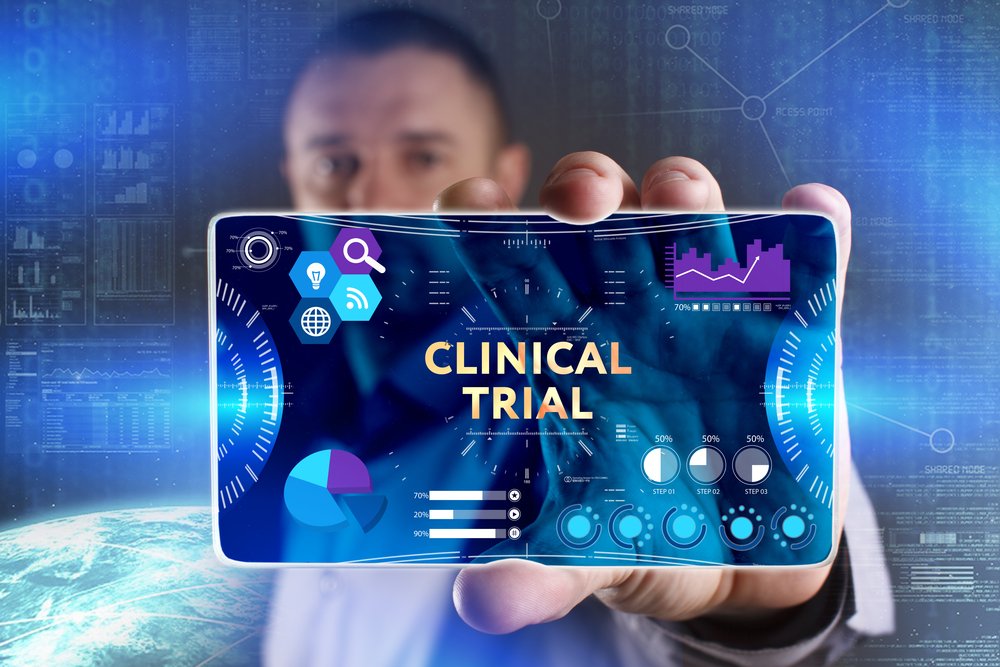Amryt Plans Regulatory Submissions for Filsuvez Following Positive Phase 3 Data
Written by |

596601173/Shutterstock
Filsuvez, a topical formulation being developed by Amryt Pharma, significantly improved wound closure in people with epidermolysis bullosa (EB) taking part in a Phase 3 clinical trial.
According to Amryt, EASE (NCT03068780) is the first Phase 3 study to show a statistically significant increase in speed of wound healing in EB.
Based on these results, Amryt expects to submit applications seeking approval of Filsuvez in the U.S. and the European Union in early 2021.
“This positive outcome … marks another significant milestone for Amryt as we seek approval for Filsuvez and represents a potentially important advancement for patients and families,” Joe Wiley, MD, Amryt’s CEO, said in a press release. “If approved, we intend to leverage our existing global infrastructure to commercialize Filsuvez.”
“We look forward to working with regulatory authorities to make Filsuvez available as the first approved therapeutic treatment for EB patients,” he added.
Filsuvez — previously called Oleogel-S10 or AP101 — is a gel applied to the skin that contains birch bark extract, which is rich in a compound called betulin. Studies have shown that betulin can activate skin cells and pro-inflammatory molecules involved in wound healing.
In Europe, the gel has been approved for the treatment of partial thickness wounds in adults, under the brand name Episalvan. Prior clinical trials have shown positive results in people with skin grafts and burn wounds, which are similar to EB wounds, and a small proof-of-concept Phase 2 study (EudraCT 2010-019945-24) supported the gel’s safety and efficacy in EB specifically.
EASE, sponsored by Amryt, is the largest Phase 3 clinical trial conducted in EB, said Amryt, as it enrolled 67 adults and 156 children in multiple countries.
“The conduct of a global clinical trial involving 58 centres in 28 countries in such a rare serious and predominantly pediatric disease has been a challenging but enormously important undertaking,” said Mark Sumeray, MD, chief medical officer of Amryt.
The trial specifically enrolled people with junctional EB, dystrophic EB, or Kindler syndrome who had an EB-related wound between 10 and 50 cm2 in size for more than three weeks, but less than nine months.
For the first three months of the study, participants’ wounds were treated with Filsuvez or a placebo. All patients who completed this first part of the study then continued in a 24-month extension phase, in which only Filsuvez was given, to collect long-term safety data.
The study met its primary goal — its main measurement of efficacy — with significantly more people on Filsuvez experiencing complete wound healing within 45 days of starting treatment compared to the placebo.
In contrast, differences in secondary measures — including the proportion of participants with complete wound closure after 90 days — did not favor Filsuvez significantly, although benefits were observed, said Amryt.
More detailed results, as well as additional data and analyses for secondary goals, is expected in the upcoming weeks.
“It is very gratifying to see the first results from the trial provide evidence of the effect of FILSUVEZ on the speed of wound healing in such a complex clinical situation,” Sumeray said. “We look forward to further data over the next few weeks.”
As a potential EB treatment, Filsuvez has previously received fast track and rare pediatric disease designations from the U.S. Food and Drug Administration (FDA). The potential therapy has also been named an orphan drug in the both the U.S. and the EU.
Amryt now intends to request priority review from the FDA, and to pursue an accelerated assessment in the EU.
“The very positive results of the largest international clinical trial conducted in EB is an incredibly exciting development and a very important milestone for the global EB community,” Brett Kopelan, executive director of debra of America and president of Debra International (both organizations aim to improve the lives of people with EB). “I want to thank the entire team at Amryt for the commitment and fortitude it took to complete this trial.”
“As the executive director of debra of America and as the President of Debra International, but more importantly as the father of a 13 year-old daughter with recessive dystrophic EB, I couldn’t be more enthused,” he added.





